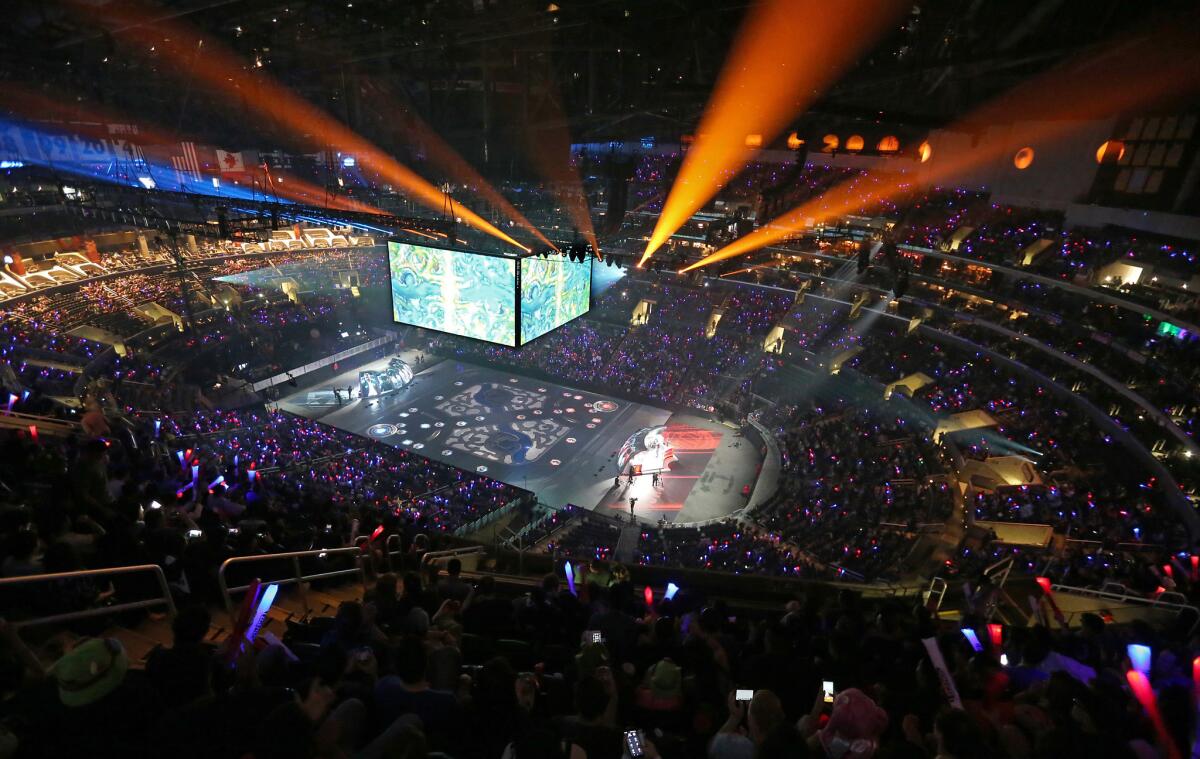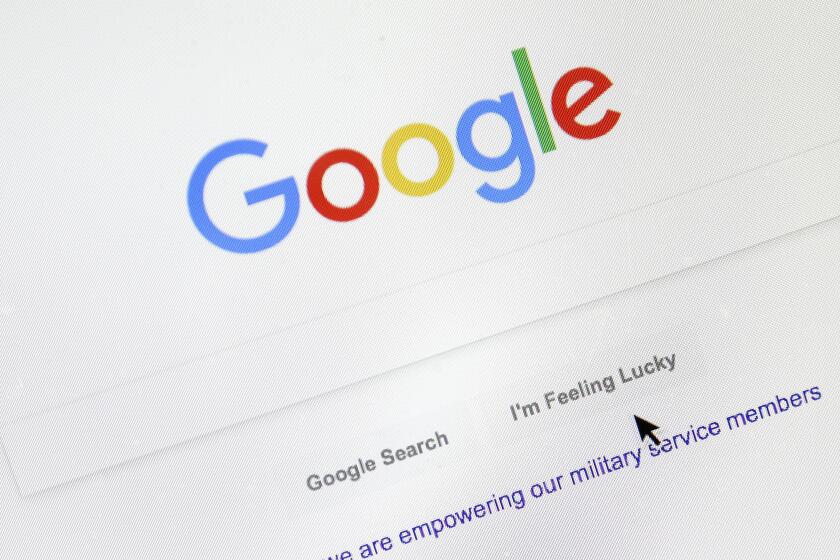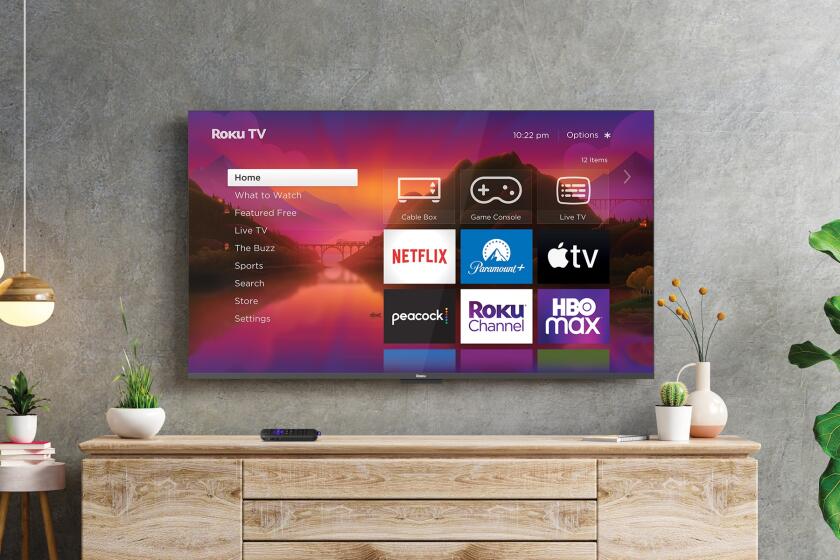Trump banned TikTok and WeChat. Are video games next?

President Trump’s two executive orders targeting Chinese companies went public just after 6 p.m. Pacific on Thursday.
The first went after TikTok, to no one’s surprise. The video app had been the subject of intensifying rhetoric from the Trump administration for weeks. The order declared that all U.S. entities would be banned from doing business with parent company ByteDance starting in 45 days — a deadline that may serve mostly to put a shot clock on Microsoft’s negotiations to buy TikTok.
The second order was a curveball. In a tangle of commas, it prohibited “any transaction that is related to WeChat,” a messaging app ubiquitous in China and used by more than a billion people around the world, with Tencent Holdings, WeChat’s parent company, “or any subsidiary of that entity.”
By 7 p.m., the gamers were freaking out.
Trump, tweeted Noah J. Nelson, “basically just declared war on gamers as a whole. I’m sure that will work out nicely for him.”
In addition to WeChat, Tencent either owns or holds stakes in the largest video game companies in America. Los Angeles’ Riot Games, creator of “League of Legends,” is a fully owned subsidiary of Tencent, and the company owns 40% of Epic Games, which makes the wildly popular “Fortnite.” It also holds 5% stakes in gaming giants Activision Blizzard and Ubisoft, and ownership or investment stakes in a number of other game studios.
The bulk of the executive order focused on WeChat, laying out a case that the messaging app is a threat to national security.
“Like TikTok, WeChat automatically captures vast swaths of information from its users,” the order reads. “This data collection threatens to allow the Chinese Communist Party access to Americans’ personal and proprietary information.”
The order also says that WeChat tracks Chinese nationals visiting the United States, and censors messages and content that the Chinese government deems politically sensitive, as has been reported by NPR and researchers at the University of Toronto.
But the fuzzy phrasing seemed to leave the door open to banning business with any of Tencent’s video game companies. Even though TikTok had been dominating the headlines for weeks, Tencent quickly became a trending topic on Twitter, with panicked gamers predicting a mass uprising in response. The company said it was “reviewing the executive order to get a full understanding.”
A little after 8 p.m., White House officials offered some reassurance, clarifying that the order was meant to focus only on transactions specifically related to WeChat.
But administration officials have not gone into further detail since, and legal experts say that the ambiguous language — and the provision that the secretary of Commerce, Wilbur Ross, has the power to define the transactions in question in the next 45 days — still leaves room for the government to go after the game studios.
“The language is atrocious,” said Bryan Sullivan, partner at Los Angeles law firm Early Sullivan Wright Gizer & McRae, and is ambiguous enough that it could be applied to anybody who transacts business with any company related to Tencent if the secretary of Commerce decided to cast that wide of a net. “I’m sure that the administration would say it’s not meant to do that, but looking at the language of it, there’s definitely a legal argument that it could apply.”
Although a company is typically considered a subsidiary when a parent company holds more than 50% ownership, Sullivan noted that the executive order did not provide a concrete definition, so it could be used to pursue even the companies that Tencent has invested in, such as Snap, Spotify, Universal Music Group and the various video game studios.
“Do I think the secretary of Commerce is going to go to that level?” Sullivan said. “Probably not, but under this executive order he has the power to do that.”
Steven Blickensderfer, a tech and video game-focused attorney with Carlton Fields who also hosts a game-focused legal podcast, said the announcement caught him off guard.
“I was as surprised as everyone else at how broadly worded it was, in terms of what you could interpret it to cover,” he said.
Disentangling the Chinese and U.S. gaming markets, the world’s two largest, would be massively difficult, Blickensderfer added.
“Gaming is so closely tied with China,” he said. “This brought the trade war to the gaming industry and made it very real — even though this might be a false alarm, who’s to say that there won’t be another one right behind it?”
The confusion around the executive order targeting WeChat doesn’t end with its ambiguous language. The premise underlying both the TikTok and WeChat orders, according to some business and cybersecurity policy analysts, is based more on rhetoric than the specifics of how those apps function.
“At a high level, there are real cybersecurity, data privacy and information manipulation questions to ask about WeChat and Chinese apps in general,” said Justin Sherman, a fellow with the Cyber Statecraft Initiative at the Atlantic Council. “This is not about that — this has been an intensely politically driven process.”
Tencent’s ownership of American game studios has also given rise to genuine political and security concerns. Last year, Activision Blizzard stripped a professional video game player of his championship title after he spoke out in support of Hong Kong protesters, which many saw as a sop to its growing Chinese user base and Tencent’s investment stake. And a Times investigation found that a number of companies, including Riot Games, created time-tracking surveillance tools for Chinese players in response to a Chinese government initiative to reduce the time spent by children on video games.
Whatever the real security issues, Sherman said, a surprise executive order is a poor substitute for well-informed policy. If TikTok, WeChat or other Tencent companies’ data policies were a concern, Sherman said, federal lawmakers could “pass a strong federal privacy law so that no company can go collect absurd amounts of information about users” or “completely swing elections with microtargeted advertising.”
“Even if you like the ban on TikTok or WeChat,” Sherman said, “you should still care about the process by which these decisions are made.”
And the Trump administration’s unusual approach to regulating TikTok and WeChat, let alone the rest of Tencent’s holdings, could have ripple effects far beyond the Washington-Beijing relationship.
“We need to be careful here from a diplomacy standpoint,” said Theresa Payton, former White House chief information officer and now chief executive of Fortalice Solutions, a cybersecurity consulting firm. “What we don’t want to do is actually create a chilling effect. The rest of the world is watching,” and might reach the conclusion that simply operating in the U.S. presents the risk that their business might be shut down or forced to sell on a tight deadline whenever they come under scrutiny.
“Forty-five days to hammer out a deal and make the regulator sitting at the table happy in the best of times is hard. I can’t even imagine,” Payton added. Microsoft is exploring buying TikTok, but no mention has been made of forcing a sale of WeChat or other Tencent properties to an American company, since the company had barely entered the discussion before the executive orders were published Thursday.
Without knowing how the secretary of Commerce will define the terms of the executive order, it remains impossible to predict whether Tencent’s holdings beyond WeChat will be affected — perhaps because the drafters of the executive order hadn’t even thought through the implications of what they were writing, one business analyst said.
“It is possible that the tiny part of the American government that’s obsessing on this issue doesn’t even know” that Riot Games and other gaming and technology companies are owned by Tencent, said Mike Vorhaus, a video game industry consultant. “I expect there to be a lot of lawsuits.”
Times staff writer Todd Martens contributed to this report.







